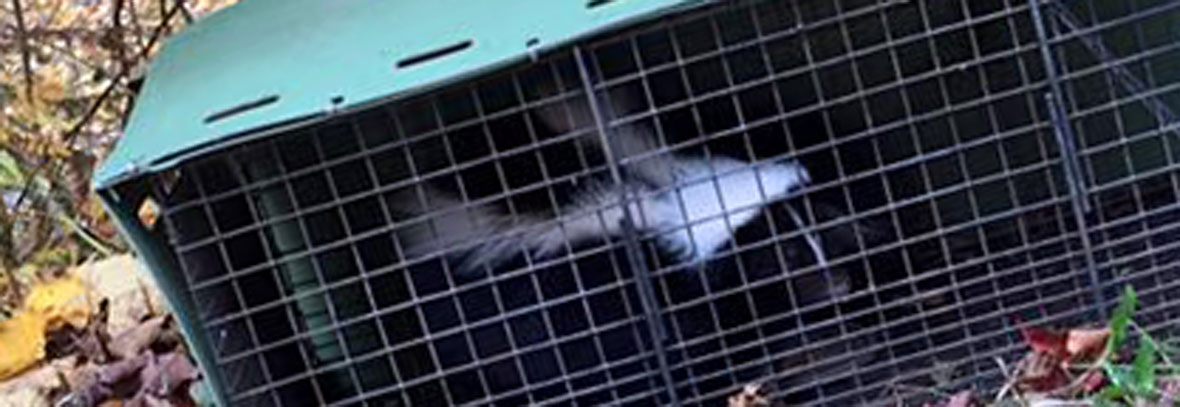What are some of the symptoms of a sick skunk?
When you find an injured or sick wild skunk, then the vet may not be able to treat it. When the injured or sick skunk is avoiding threats like domestic animals or human beings when they are near it, then it is better to leave such a skunk on its own. However, when you are not sure that the animal is capable to help itself out, then you should think about calling a local vet to help you out.

The sick skunk can refuse to eat, can stay in one place for a long time without playing around, and may want to be warm. It may be sick if it refuses to eat even their favorite foods. The skunk may also have a high fever.
When you find an adult skunk and you think that it requires your help, then you should check if it has any signs of illness or injury.
The obvious signs of injury or illness are wounds and injured limbs, loss of balance, shaking or missing fur. The animal may have abnormal behavior like appearing sleepy if it is approached or appearing blind to people who are within 1 to 2 feet.
If any skunk looks sick, then you should contain it first before you call for help. If you are the one who found the animal, then you should be the one to contain it. A sick skunk, especially a rabid one, is dangerous and is not safe to be around. It is recommended that you call for help. It is possible to contain a sick animal even when you do not have the right training. However, your safety has to be put before anything else since even sick animals may cause an injury.
When you find an injured skunk, you should call a wildlife rehabilitator. When a skunk appears to be sick, it may have distemper, and this cannot be transmitted to humans. If you see that a skunk is sick, you should not call a pest controller or a trapper service since they will most of the time kill the skunk so that they cannot be sprayed. It is good to call the local animal control department or the humane society to ask officers if they are able to euthanize the skunk in a safer way. They use painless options to kill the skunk instead of drowning as other people sometimes do.
The skunk can be affected by both external and internal parasites, and you should be on the lookout for any signs of parasites on your skunk.
Wounds can be minor or big cuts. You should not think that a scratch is not something that you have to worry about. The minor wounds may end up infected and you need to take it to a vet.
You may also want to read:
Go back to the Skunk Removal home page or email us for more info about what are some of the symptoms of a sick skunk?

